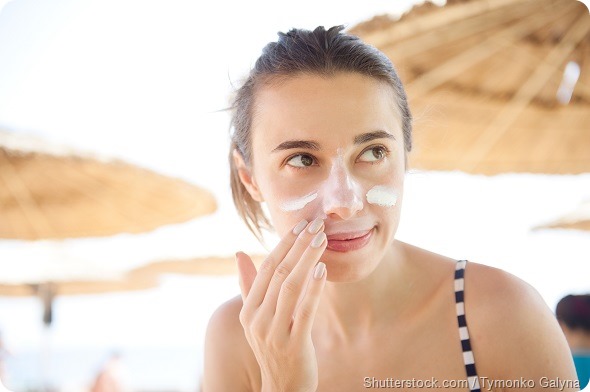A new study has shown that a large proportion of the top selling sunscreens do not meet guidelines recommended by the American Academy of Dermatology (AAD).
The study, which was carried out at Chicago’s Northwestern University, found that a worrying 40% of the top-rated products fell short of AAD’s three basic criteria; that they protect against UVA and UVB rays, are water resistant and have an SPF higher than 30.
The Northwestern investigators also found that people spent up to 3,000% more on sunscreens that offer the same protection as cheaper products.

As reported in JAMA Dermatology, Dr. Steve Xu and colleagues wanted to establish which sunscreens are the best performing and most affordable so they would know which ones to recommend to their patients. They also wanted to know which ones were the most popular because finding out what customers prefer, could guide recommendations in terms of increasing the likelihood that people will actually use them more.
“We are often asked to recommend sunscreens, and we wanted to know what consumers prefer,” says Xu. “This way we are suggesting popular products they will actually use that will protect them.”
The team analyzed the top-rated 1% of the 6,500 sunscreens available on Amazon. Each of the 65 products selected had been given a minimum rating of 4 out of 5 stars and had been reviewed by a minimum of 150 individuals.
The study showed that 26 of the products did not meet the AAD criteria, with water and sweat resistance being the most common factors that the products failed to deliver on.
The median cost was $3.32 per ounce, with the cheapest sunscreen costing 68 cents per ounce and the most expensive costing $24.00 per ounce.
Dermatologists should have a voice in consumer choices when it comes to skin health, a voice that takes the patients’ best interests at heart and is not influenced by marketing claims,” says Xu, “it is important that we understand the different factors that patients want so we can give them different options – ‘if you’re looking for something cheap, I’d recommend this,’ or ‘this one is popular because of its smell and it meets AAD criteria.”
The study was published in the journal JAMA Dermatology.